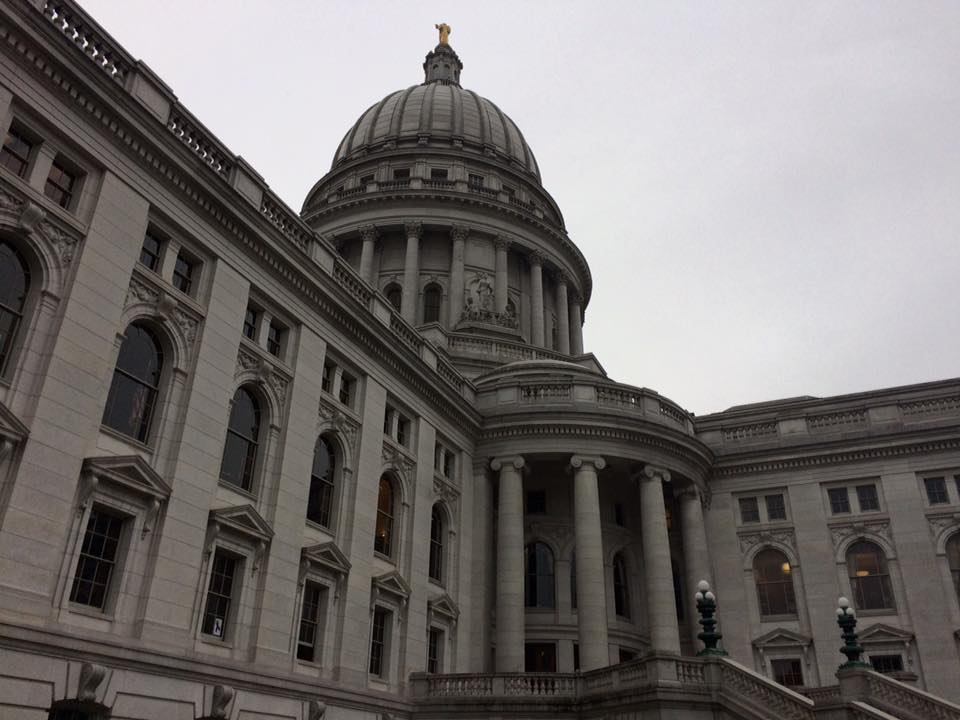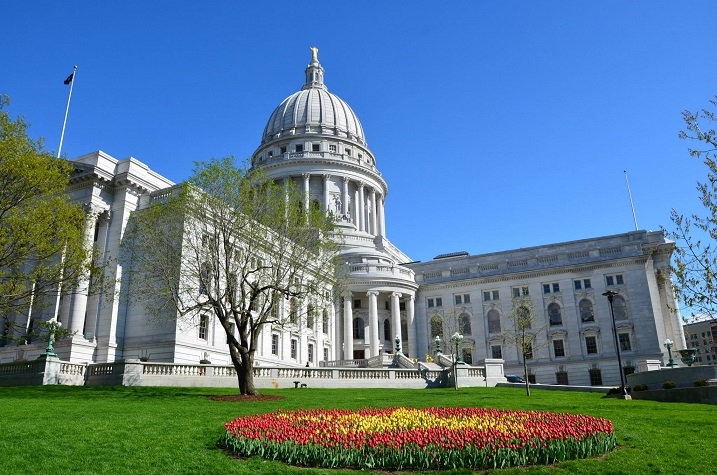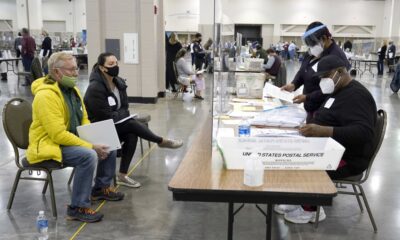Coronavirus
City’s lawsuit seeks to delay Wisconsin’s April 7 election

MADISON, Wis. (AP) — Local officials’ frustration with Gov. Tony Evers’ refusal to order any changes to Wisconsin’s presidential primary to protect people from the coronavirus reached new heights as the city of Green Bay sued to stop in-person voting and leaders in River Falls questioned how the election can proceed.
The virus has infected nearly 600 people in Wisconsin and killed seven. Models show that without stricter social distancing measures, as many as 22,000 people could contract the virus and as many as 1,500 could die by April 8.
The April 7 election features a Wisconsin Supreme Court race and hundreds of local races, in addition to the presidential primary. A number of states have postponed their presidential primaries, but Evers, a Democrat, has refused to delay Wisconsin’s election. Many local officials’ terms end in mid-April and delaying the election would leave those offices vacant, the governor has said. Republican legislative leaders said Wednesday they want the election to go on as scheduled as well and maintain that Evers can’t unilaterally adjust its parameters.
Green Bay filed a federal lawsuit Tuesday alleging that local governments are finding it “functionally impossible” to administer the election and maintain social distancing. The lawsuit states that 90% of the city’s 278 poll workers are at least 60 years old, making them especially vulnerable to the virus. Only 54 of the 278 workers had agreed to work the election as of Friday, the lawsuit said.
The city wants a judge to cancel in-person voting, allow it to send absentee ballots to all registered voters, extend the deadline for registering online or by mail to May 1, and give the city until June 2 to count ballots.
River Falls City Administrator Scot Simpson and Mayor Dan Toland issued a statement questioning how in-person voting — which has already begun in a number of municipalities — can take place in light of an order Evers issued Tuesday directing residents to remain in their homes and prohibiting all nonessential travel. The order does not make any exceptions for traveling to the polls.
City Clerk Amy White said that 20 poll workers have informed her that they won’t help on Election Day and one of River Falls’ five polling places lacks the minimum number of workers the state requires.
For most people, the new coronavirus causes mild or moderate symptoms, such as fever and cough that clear up in two to three weeks. For some, especially older adults and people with existing health problems, it can cause more severe illness, including pneumonia, or death.
Souls to the Polls, a group that works to get out the black vote, held a teleconference with reporters Wednesday featuring its president, Greg Lewis, and Milwaukee Democratic state Rep. David Bowen. Both have tested positive for the virus and pushed Evers to postpone the election.
“I can barely get out of bed. So this whole thing is real,” Lewis said. “It’s confusing to me to ask everybody to stay home and then you tell everybody we’re going to have a vote on April 7. That just doesn’t make sense to me.”
Evers said Monday that he was mulling whether to order that the election be conducted completely by mail. His spokeswoman, Melissa Baldauff, didn’t immediately to a message Wednesday.
State Senate Majority Leader Scott Fitzgerald and Assembly Speaker Robin Vos said the Legislature’s attorneys have told them Evers can’t do that without lawmakers’ approval.
A preliminary analysis by the Wisconsin Legislative Council, the Legislature’s legal office, shows that state statutes lay out how to designate polling sites, the hours of operations and deadlines for clerks to receive absentee ballots. The governor has broad authority to issue orders as he sees fit during a state of emergency — which Evers has declared — but he cannot alter state law unilaterally, according to the analysis. But the extent of the governor’s powers in emergencies has never been challenged in court, the analysis notes.
Fitzgerald predicted that many people who have voted in-person for decades simply would not vote by absentee ballot. Vos said clerks can take precautions such as implementing curbside voting, limiting the number of people who can vote at once and letting people keep the pens they use to mark their ballots.
Local clerks had issued 595,195 absentee ballots as of Wednesday morning, according to the Wisconsin Elections Commission.
Dane County Clerk Scott McDonell told voters to mark themselves as indefinitely confined when applying online for absentee ballots to avoid having to upload a photo ID. Evers’ stay-at-home order means people can’t go out to obtain a photo ID or purchase equipment to upload one, said McDonnell, who is a Democrat.






